Saudi crown prince is seeking to humiliate Biden as part of a global power play: Report
Saudi Arabia’s Crown Prince Mohammed bin Salman (MBS) is seeking to humiliate US President Joe Biden as part of a global power play between the United States and its allies on the one side and China and Russia and their allies on the other side, according to a report published in the US print media.
The Saudi crown prince is deliberately snubbing the Biden administration in an attempt to chart a more independent path, an expert said in the report published by Business Insider on Friday.
Giorgio Cafiero, the CEO of (Persian) Gulf State Analytics, was referring to a diplomatic spat between the US and Saudi Arabia fueled by a dispute over oil production amid a worsening global economic crisis.
The US and Saudi Arabia have been close allies for decades with Washington selling weapons worth billions of dollars to the kingdom on the pretext of bolstering its defenses and in return Riyadh protecting Washington’s interests in the Middle East region.
Cafiero said, "With Mohammed bin Salman at the helm, Saudi Arabia is very determined to assert its autonomy from the US. The leadership in Riyadh has been sending many signals to Washington that the Kingdom will pursue its own national interests as perceived by Saudi officials, which includes deepening cooperation with Beijing and Moscow."
The oil-exporting alliance, which includes the 13 Petroleum Exporting Countries and allies (OPEC+) nations and 11 non-members including Russia, made the production cut announcement earlier this month. The group agreed to cut output by 2 million barrels per day, equal to 2 percent of global supply.
This was the exact opposite of requests from the Biden administration to increase oil production, in the hope of lower prices that would help tame US inflation and deprive Russia of revenue.
The OPEC move was a large blow to the administration of Biden, who visited oil-rich Saudi Arabia on a July trip to appeal to bin Salman despite a CIA conclusion that he had personally ordered the murder of dissident and journalist Jamal Khashoggi.
US officials told The New York Times that they thought they had secured a deal with the kingdom and were blindsided when their plan fell apart
This caused humiliation for President Biden, who has struggled to build an international coalition against Russia and to amend ties with the Saudis.
The Biden administration has grappled with high oil prices and inflation exacerbated by Russia’s war with Ukraine.
Independent observers believe the Biden administration is worried that the decision to cut oil production will cause a gas price hike in the US ahead of the November midterm elections which Democrats are already set to lose to the Republicans.
The White House has claimed Biden’s trip to Saudi Arabia in July was not to lobby for an increase in the country’s oil exports.
Cafiero, the analyst, said that MBS believes that closer ties with Russia and China will secure more "leverage" internationally.
The Wall Street Journal on Saturday reported that the Saudi crown prince "mocks President Biden in private, making fun of the 79-year-old's gaffes and questioning his mental acuity."
Saudi Arabia’s Foreign Ministry has rejected as “not based on facts” claims that the slash in oil production was politically motivated against the US, saying that OPEC+ adopted the decision through consensus, took into account the balance of supply and demand and tried to curb market volatility.
In August, the United States approved massive arms sales to Saudi Arabia and the United Arab Emirates worth more than $5 billion, amid criticism of their ongoing military aggression in Yemen which has inflicted heavy civilian casualties.
The State Department said Saudi Arabia would buy 300 Patriot MIM-104E missile systems and related equipment for an estimated $3.05 billion. The missile systems can be used to shoot down long-range incoming ballistic and cruise missiles, as well as fighter jets.
Separately, the United States will sell Terminal High Altitude Area Defense (THAAD) System Missiles and related equipment to the UAE for $2.25 billion.
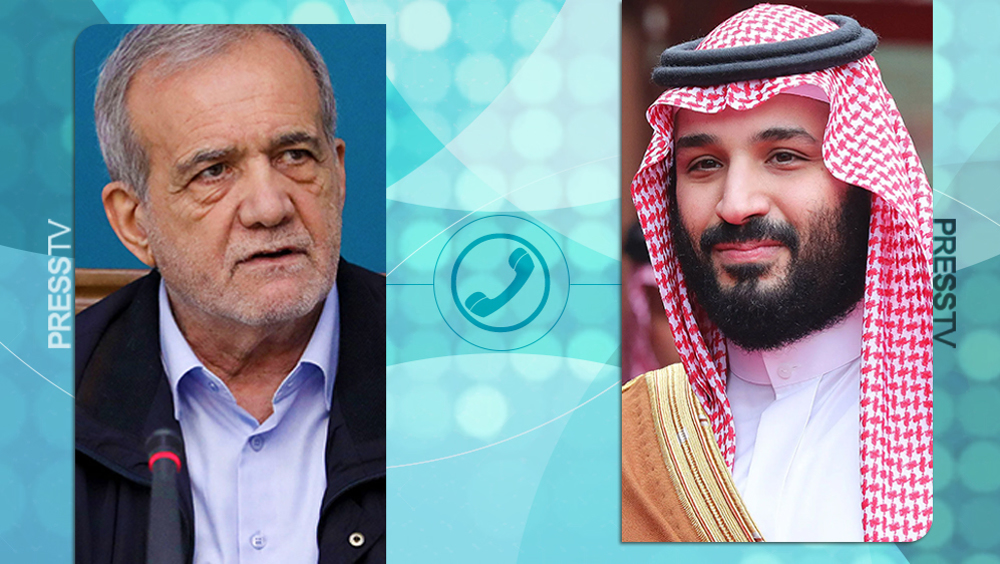
Pezeshkian: Iran's capability in defending itself at highest level
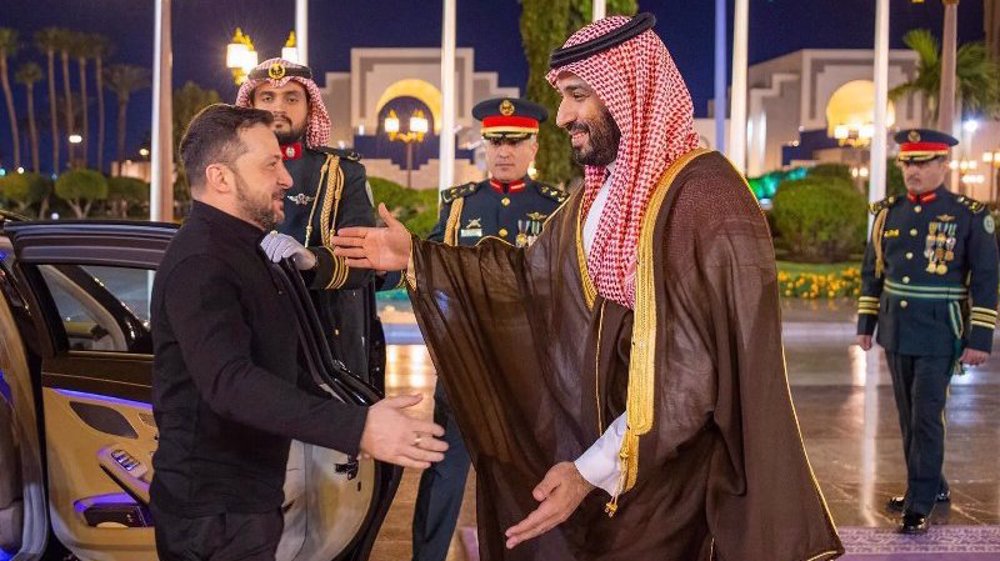
Zelensky in Saudi Arabia for support after clash with Trump in US
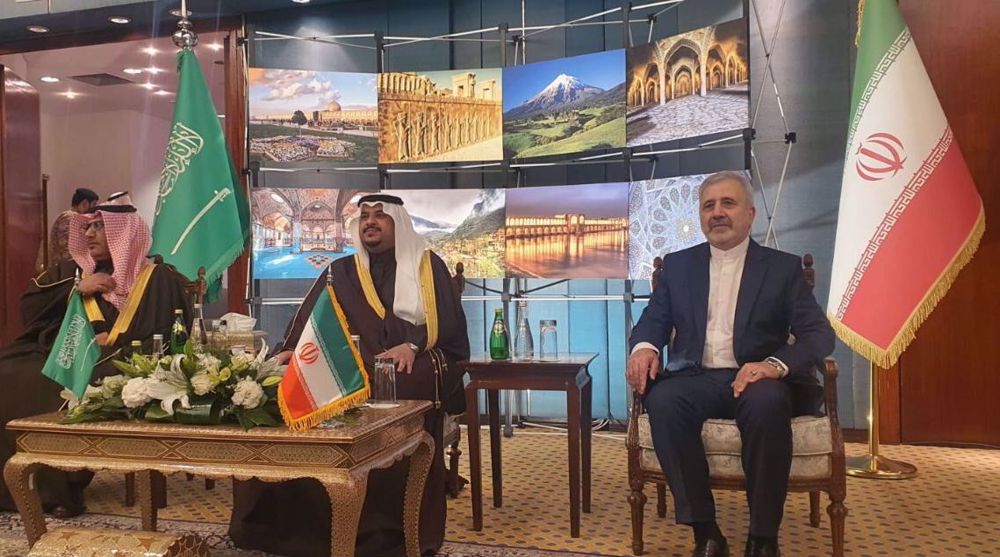
Tehran, Riyadh expanding, deepening mutual cooperation: Iran’s ambassador
Israeli strike kills three, including Hamas official, in south Lebanon
South Korea's court removes president over martial law controversy
Pezeshkian: Iran's capability in defending itself at highest level
VIDEO | Trump’s tariffs risk global trade war; EU prepared to retaliate
VIDEO | Netanyahu visits Hungary despite arrest warrant
VIDEO | Madrid cultural event for Syria with documentary hailing fight against Takfiris
VIDEO | UK economy reels from impact of Trump Tariffs
UNRWA chief slams Israel’s attacks on UN facilities


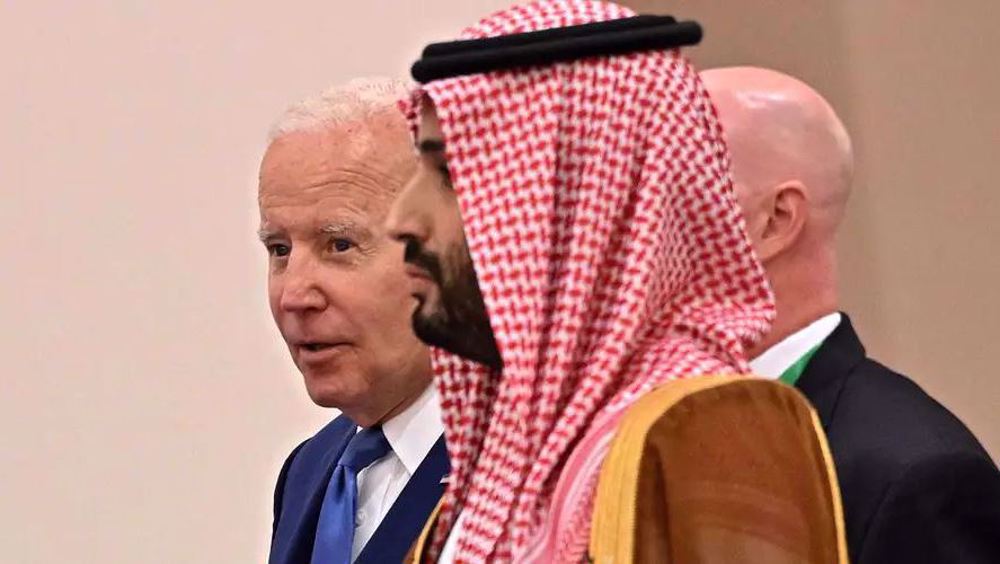
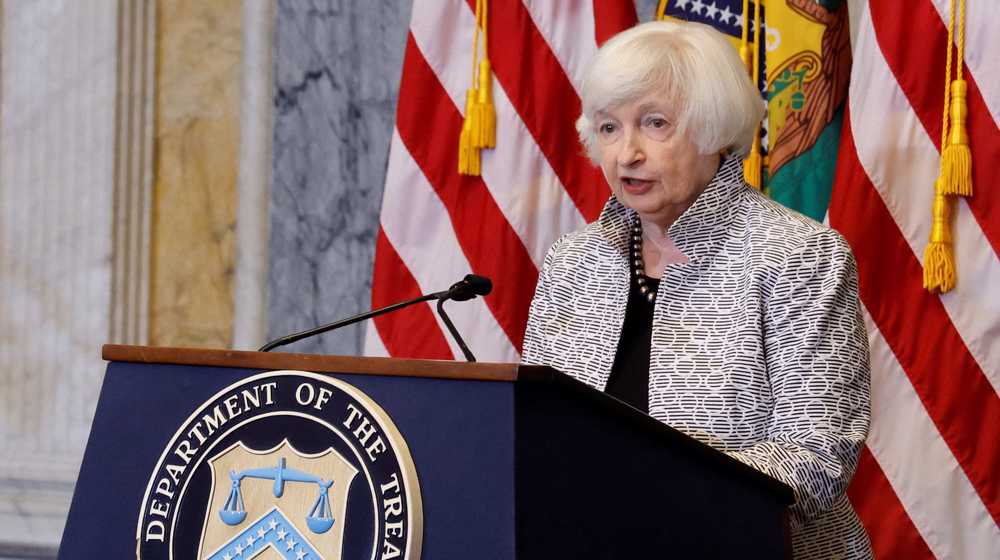




 This makes it easy to access the Press TV website
This makes it easy to access the Press TV website